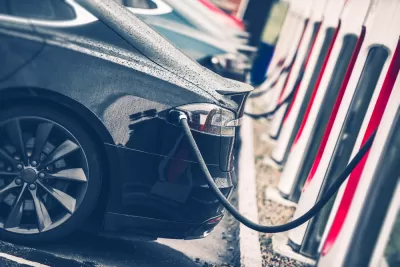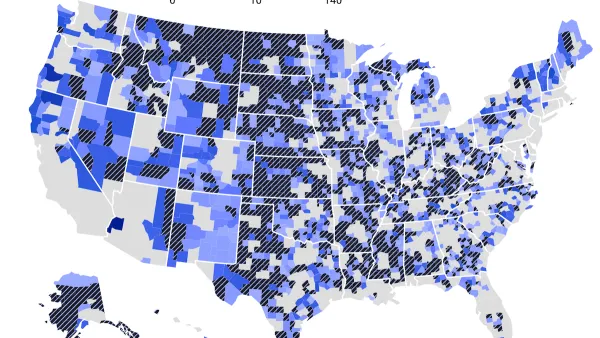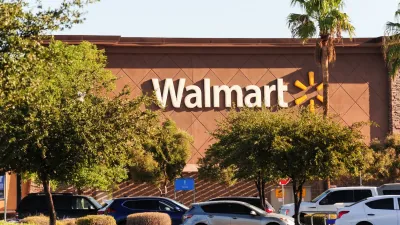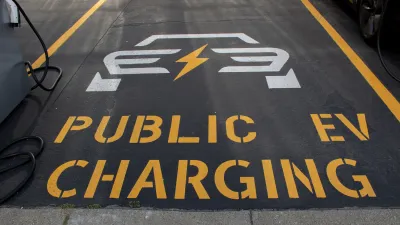Chicago-area municipalities can take advantage of a new grant program to prepare their infrastructure for electric vehicles.

The Chicago suburb of University Park was recently awarded the second-highest score out of a dozen Chicago-area municipalities participating in a program designed to improve their electric vehicle charging networks.
According to an article by Kari Lydersen in Energy News Network, “University Park is in the process of acquiring an EV charging station for electric semi-trucks city leaders hope will increasingly serve its warehouses, and they hope to add electric vehicles to their municipal fleet while also supporting residents to get their own EVs.”
The EV Readiness Program offers guidance to cities and towns to help them update zoning and building codes to facilitate EV charging infrastructure, provides training for first responders in responding to EV fires, and assists with accessing grant programs and incentives. “Last year the Illinois legislature passed the Electric Vehicle Charging Act, which requires new single-family homes and multi-family buildings be EV capable, meaning conduit is laid to allow easy installation of chargers and wiring. State law also prohibits landlords and homeowners associations from unduly interfering with charger installation, and clarifies how renters should pay for electricity used in charging EVs.”
According to Lydersen, “Illinois has been a leader in legislation promoting electric vehicles on the state level. The 2021 Climate and Equitable Jobs Act created incentives for public transit electrification and EV ownership, with a goal of having one million EVs on Illinois roads by 2030.”
FULL STORY: A gold star for EV Readiness: Chicago-area program prepares communities for electric vehicle adoption

Planetizen Federal Action Tracker
A weekly monitor of how Trump’s orders and actions are impacting planners and planning in America.

Maui's Vacation Rental Debate Turns Ugly
Verbal attacks, misinformation campaigns and fistfights plague a high-stakes debate to convert thousands of vacation rentals into long-term housing.

San Francisco Suspends Traffic Calming Amidst Record Deaths
Citing “a challenging fiscal landscape,” the city will cease the program on the heels of 42 traffic deaths, including 24 pedestrians.

Amtrak Rolls Out New Orleans to Alabama “Mardi Gras” Train
The new service will operate morning and evening departures between Mobile and New Orleans.

The Subversive Car-Free Guide to Trump's Great American Road Trip
Car-free ways to access Chicagoland’s best tourist attractions.

San Antonio and Austin are Fusing Into one Massive Megaregion
The region spanning the two central Texas cities is growing fast, posing challenges for local infrastructure and water supplies.
Urban Design for Planners 1: Software Tools
This six-course series explores essential urban design concepts using open source software and equips planners with the tools they need to participate fully in the urban design process.
Planning for Universal Design
Learn the tools for implementing Universal Design in planning regulations.
Heyer Gruel & Associates PA
JM Goldson LLC
Custer County Colorado
City of Camden Redevelopment Agency
City of Astoria
Transportation Research & Education Center (TREC) at Portland State University
Jefferson Parish Government
Camden Redevelopment Agency
City of Claremont





























